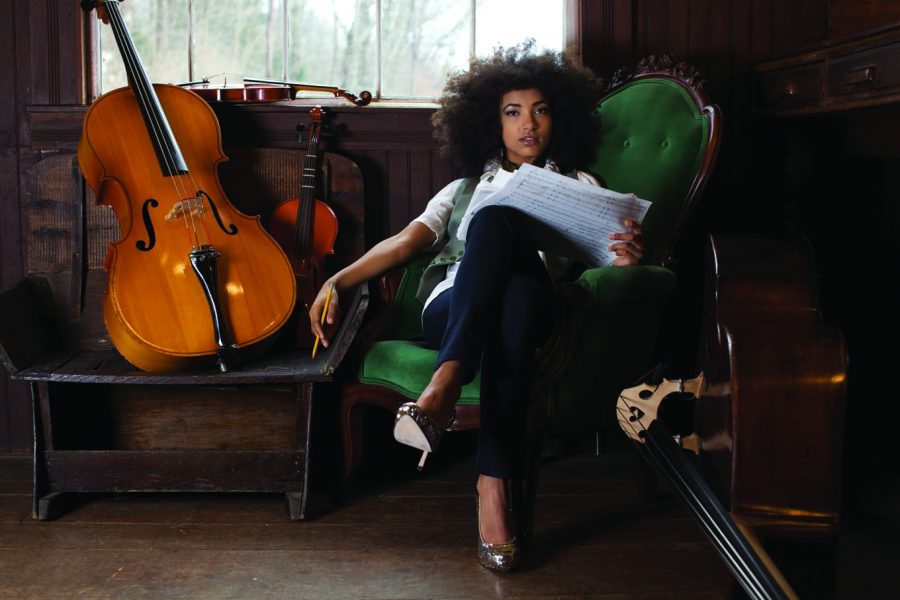Wait, who is Esperanza Spalding?
February 17, 2011
And the nominees are: Justin Bieber, Drake, Florence & The Machine, Mumford and Sons and … Esperanza Spalding? The 53rd annual GRAMMY Awards left many scratching their heads when little known jazz bassist and vocalist Esperanza Spalding, who just released her second studio album, won Best New Artist. Although many had never heard of the talented multi-instrumentalist, some UNA students have been keeping up with her for some time now.
“I heard about her music from my mother,” said UNA senior Brandon Jackson. “I’ve been listening to her for almost a year and a half.”
Spalding may seem like a new artist to those listening to mainstream radio, but her first solo album for Heads Up International, “Esperanza,” was released in 2008. It stayed atop the Billboard Contemporary Jazz charts for over 70 weeks. In 2005, aside from earning her B.M., she became the youngest instructor at Berklee College of Music at age 20. This is another thing that Jackson took notice of.
“People were surprised that she won the award,” he said. “She was so much more talented than most people realize. Even outside of music she is extremely intelligent. Her music is ‘real music.'”
Spalding weaves a unique web of vocal styles singing in English, Spanish or Portuguese depending on the mood of the particular track. Her music also combines many different sounds classified best as jazz fusion. Spalding’s love for music began at a very early age. According to her official website, at age four, after watching classical cellist Yo Yo Ma perform on an episode of “Mister Rogers’ Neighborhood,” her future was blatantly obvious.
“That was when I realized that I wanted to do something musical,” she said. “It was definitely the thing that hipped me to the whole idea of music as a creative pursuit.”
Within a year of that inspiring performance, Spalding had taught herself how to play the violin well enough to secure a place in the Chamber Music Society of Oregon, a community orchestra that was open to both children and adult musicians, according to her official website. She stayed with the group for ten years, and by age 15, she had been elevated to a concertmaster position.
Then, she discovered the bass, and all of the unconventional avenues that the instrument could take her down. She began to play the local club circuit. Unless you’re Geddy Lee, playing extremely involved bass lines and singing is difficult, but Spalding seems to entwine the two seamlessly. People weren’t necessarily upset that she won, but were more confused over the requirement for being considered a “new artist.”
The rule, according to The National Academy of Recording Arts and Sciences, considers those eligible for the award as an “artist who releases, during the Eligibility Year, the first recording which establishes the public identity of that artist.” It’s almost turned into a “best of what’s next” award. Spalding did beat artists that are sometimes labeled as pre-packaged, mass marketed nominees, but recent UNA graduate Kevin Ogle, an intern at Center Stage in Atlanta, can see both sides of the issue.
“I understand she has been recording and active since the early 2000’s,” he said. “But the GRAMMYs say that they’re eligible for the first year that they get their public identity, and who can determine that? Her ‘public identity’ could have been established as early as 2006. That being said, Beiber and Drake shouldn’t have been nominated if they actually follow that guideline. If that’s the case, why even bother with the award “Best New Artist’?”


